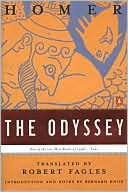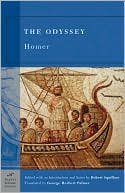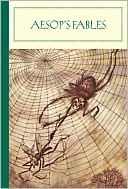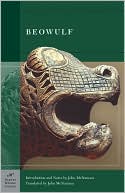The Enneads
Plotinus is the last great philosopher of antiquity, although in more than one respect he is a precursor of modern times. TheEnneadsbring together Platonism, mystic passion and ideas from Greek philosophy, together with striking variants of the Trinity and other central Christian doctrines, to produce a higly original synthesis. Yet despite the porfundity of his thought, and his immense influence on mystics and religious writers, Plotinus remained largely inaccessible
Search in google:
Compiled in the 3rd century AD by his student Porphyry, "The Enneads" unfolds Plotinus' study of the principles of the universe. This work is organized into 54 treatises, which are in turn more largely grouped into six books, which form the foundational concepts of Neo-Platonism. The first Ennead deals principally with ethical topics and human subjects, such as happiness, virtue, beauty, and evil. The second and third Enneads discuss mainly physical reality and cosmology, including heaven, substance, fate, eternity, time, stars, and guardian spirits. The fourth Ennead focuses exclusively on the soul, while the fifth Ennead delves into comprehensible reality and knowledge, particularly on the human intellect. Finally, the sixth Ennead considers Being and One. Overall, "The Enneads" reveal the organized thoughts of one of the last great philosophers of antiquity, a man who believed in the ability of the human soul to ascend through ever higher levels of existence toward a supreme perfection. In synthesizing philosophical thought with a mystic and nearly religious belief, this work would come to powerfully influence the Christian and Islamic theology that would follow.
Stephen MacKenna: A Biographical Sketch Extracts from the Explanatory Matter in the First Edition The Place of Plotinus in the History of Thought by Paul Henry, S. J.\ Plotinus: An Introduction Porphyry: On the Life of Plotinus and the Arrangement of His Work Preface\ The First Ennead\ First: The Animate and the Man Second: The Virtues Third: Dialectic Fourth: Happiness Sixth: Beauty Eighth: The Nature and Source of Evil Ninth: "The Reasoned Dismissal"\ The Second Ennead\ Third: Are the Stars Causes?\ Fourth: Matter Ninth: Against the Gnostics; or Against Those That Affirm the Creator of the Cosmos and the Cosmos Itself to be Evil\ The Third Ennead\ Second: Providence: First Treatise Third: Providence: Second Treatise Fourth: Our Tutelary Spirit Fifth: Love Sixth: The Impassivity of the Unembodied Seventh: Time and Eternity Eighth: Nature, Contemplation, and the One\ The Fourth Ennead\ Third: Problems of the Soul (I)\ Fourth: Problems of the Soul (II)\ Eighth: The Soul's Descent into Body\ The Fifth Ennead\ First: The Three Initial Hypostases Second: The Origin and Order of the Beings following on the First Third: The Knowing Hypostases and the Transcendant Fourth: How the Secondaries rise from The First; and on The One Fifth: That the Intellectual Beings are not outside the Intellectual-Principle: and on The Nature of the Good Seventh: Is there an Ideal Archetype of Particular Beings?\ Eighth: On the Intellectual Beauty Ninth: The Intellectual Principle, the Ideas, and the Authentic Existence\ The Sixth Ennead\ Fourth: On the Integral Omnipresence of the Authentic Existent (I)\ Fifth: On the Integral Omnipresence of the Authentic Existent (II)\ Seventh: How the Multiplicity of the Ideal-Forms came into Being; and on The Good Eighth: On Free Will and the Will of the One Ninth: On the Good, or the One Appendix I: The Chronological Order of the Tractates Appendix II: Index of Platonic References Selected Bibliography








